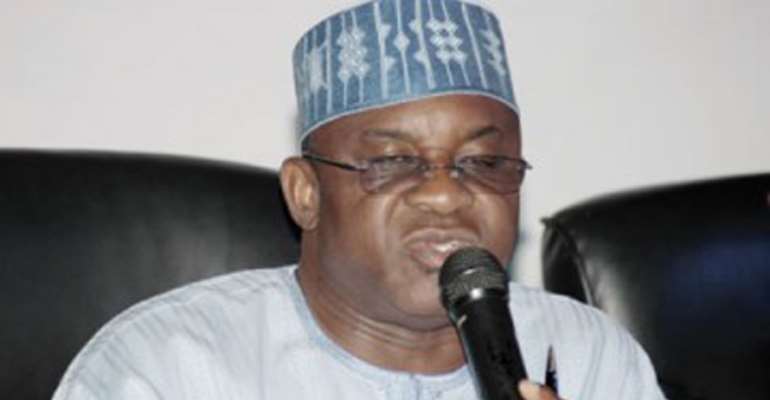Senate flays FG's implementation of SURE-P

Members of the Senate ad-hoc committee on the have come down hard on the Subsidy Re-Investment and Empowerment Programme, expressing concern over the modalities for the implementation of the programme.
It was their view that the programme had fallen short of the desired objectives for which it was set up.
All members of the the Senator Abdul Ningi-led 13-member committee were agreed in their submissions that despite the huge amount at the disposal of SURE-P, Nigerians, especially unemployed youths had yet to see its impact.
They made their view known while receiving the SURE-P committee led by Dr. Christopher Kolade, at the National Assembly complex on Thursday.
The senators expressed concern that the committee was being distracted from focusing on projects that could have direct impact on the masses in order to cushion the effects of the partial subsidy removal.
According to them, the Federal Government has reduced the committee to a channel for passing huge sums to its foreign contractors.
To buttres their position, they observed that the N27bn meant for the payment of stipends to unemployed youths was not fully released to the committee whereas the Federal Government had so far, based on the committee's report, paid about N285bn to it, for payment of contracts awarded by the Federal Ministry of Works, to construction firms owned by foreigners.
The senators said that the SURE-P committee was unable to convince Nigerians that the N15bn being released to it monthly from March 2012 till date was spent on projects that could alleviate the sufferings of the poor masses.
He expressed worry that all correspondences sent by his ad-hoc committee to relevant agencies of government in charge of fund releases to the SURE-P programme, had not been replied.
The development, he noted, did not allow his committee to ascertain whether the SURE-P handlers were receiving the appropriate funds from source, and whether projects on which payments were actually made, were verified to avoid double payments since they were awarded by a ministry which had its own vote for similar projects.
He said, 'All of you in the committee were appointed because there was the need to commit the huge funds which was actually meant for the masses, in the hands of Nigerians with proven integrity so that it will give credibility to the SURE-P programme.
'However, as it is now, Nigerians can only see your efforts, they cannot see results. The unemployed youths would only be happy if a greater percentage of the huge funds are spent on projects that will have direct impacts on them'
Kolade had, earlier, said that unless something was done urgently that the intervention body would no longer be able to pay the N10, 000 monthly stipends to beneficiaries of its empowerment programme from the end of the month due to paucity of funds.
He said the inability of his committee to honour its obligations to the 111, 000 youths it engaged across the country was because the Senate reduced its budget of N27bn, meant for that purpose, to N9bn.
Although Kolade said the committee had N93bn yet to be spent in its project execution budget, he, however, said the body was not empowered to divert funds meant for another project.
He said, 'The actual amount needed to engage 5, 000 youths across the 36 states and the FCT was N28.5bn but we presented a budget of N27bn which was reduced to N9bn. We immediately alerted the Federal Executive Council and we were assured that the original amount requested would be restored.
'However, since April when we were given the assurance, the amount was not restored; hence, we reduced the numbers of beneficiaries to 3, 000 per state but the fear now is that there is no more fund left in the budget and we won't be able to pay them at the end of the month if urgent steps were not taken to address the situation.
'The regrettable development will definitely affect the credibility of the programme and the sincerity of government to utilise parts of the funds deducted from the partial subsidy removal, to cushion the effects of the hardship on Nigerians, especially the jobless youths.'
